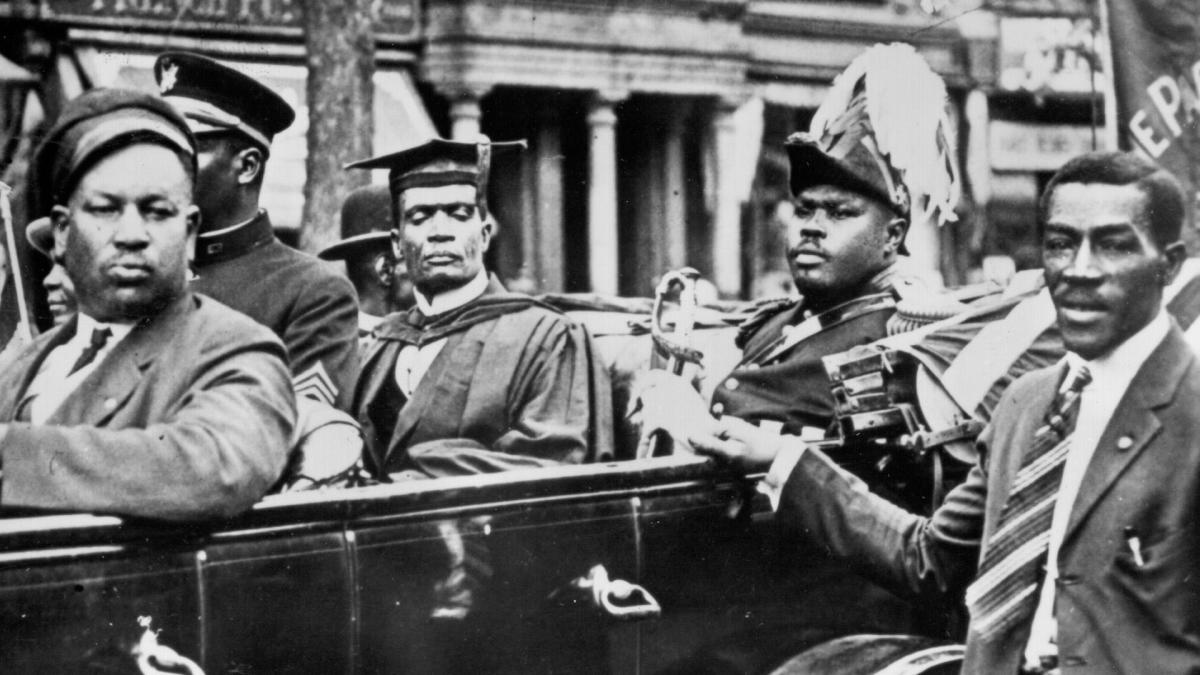
Marcus Garvey: The Visionary Behind Black Nationalism & Pan-Africanism
Introduction
Few leaders in history have ignited as much pride, unity, and determination among Black people as Marcus Garvey. As the founder of the Universal Negro Improvement Association (UNIA) and a global advocate for Pan-Africanism, Garvey’s vision of economic independence, self-reliance, and African unity laid the groundwork for future Black liberation movements. His motto, “Up, you mighty race, accomplish what you will,” continues to inspire generations worldwide.
Early Life & Influences
Born on August 17, 1887, in St. Ann’s Bay, Jamaica, Garvey was deeply influenced by his parents’ emphasis on education and history. His experiences with racial discrimination fueled his determination to uplift Black people through economic and political empowerment.
As a young man, he traveled across Latin America and Europe, witnessing firsthand the struggles of African descendants. This exposure shaped his Pan-African vision, inspiring him to build a global movement for Black self-determination.
The Birth of the Universal Negro Improvement Association (UNIA)
In 1914, Garvey founded the Universal Negro Improvement Association (UNIA) in Jamaica, but it was in Harlem, New York, where his movement truly took off. By the early 1920s, the UNIA had over six million members worldwide, making it one of the largest Black movements in history.
Key initiatives of the UNIA:
- Economic Empowerment: Garvey emphasized Black-owned businesses, launching ventures like the Black Star Line, a shipping company meant to facilitate trade between Africa and the African diaspora.
- African Unity & Repatriation: He advocated for a return to Africa, believing Black people should control their own destiny and land.
- The Negro World Newspaper: Spread his philosophy and connected Black communities worldwide.
Garvey’s Influence & Controversy
Garvey’s message of Black pride, self-reliance, and economic independence made him both a beloved leader and a target of opposition.
- He was embraced by millions who saw him as a modern-day Moses, leading Black people toward self-sufficiency.
- However, he faced resistance from other Black leaders, including W.E.B. Du Bois, who disagreed with his separatist ideas.
- The U.S. government, particularly J. Edgar Hoover’s FBI, saw him as a threat and orchestrated his arrest on mail fraud charges related to the Black Star Line.
- In 1927, Garvey was deported to Jamaica, effectively dismantling the UNIA’s momentum in the U.S.
Marcus Garvey’s Legacy
Though his movement declined after his deportation, Garvey’s philosophy and impact endured.
- His teachings inspired leaders like Malcolm X, who credited Garvey with shaping his father’s activism.
- The Rastafari movement in Jamaica adopted Garvey’s Pan-African ideals, seeing him as a prophetic figure.
- African liberation leaders like Kwame Nkrumah (Ghana’s first president) and Julius Nyerere (Tanzania’s first president) built upon Garvey’s ideas to achieve African independence.
Why Marcus Garvey’s Vision Still Matters
Garvey’s message of economic independence, unity, and self-determination remains relevant today.
- The push for Black-owned businesses and financial empowerment aligns with his teachings.
- His Pan-African ideals continue to influence global movements for racial justice and Black sovereignty.
Celebrate Marcus Garvey’s Legacy
At Black Knowledge Wear, we honor Black Legends like Marcus Garvey through wearable history. Explore our Black Legends Collection, featuring designs inspired by his powerful words and Pan-African vision.
👉 Shop the Collection
📢 Join the Conversation – Share your thoughts on Marcus Garvey’s impact using #BlackLegends #MarcusGarvey #UpYouMightyRacet fermentum et. Pellentesque suscipit sagittis felis vitae sodales.